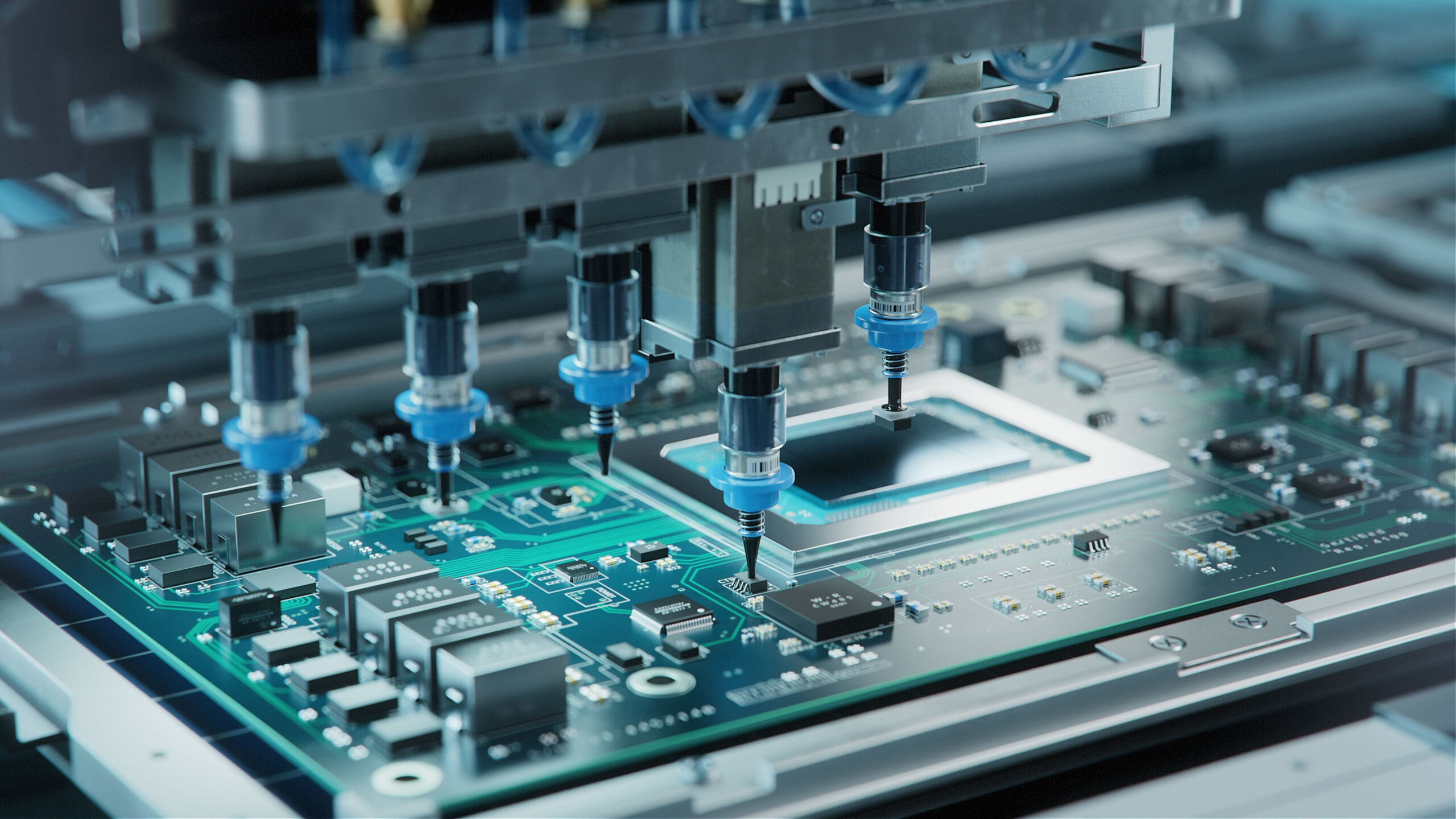The AI chip market is expected to eclipse $200 billion by early next decade.
One of the biggest opportunities among artificial intelligence (AI) investments is semiconductor stocks. Of course, some obvious opportunities include such powerhouses as Nvidia and Advanced Micro Devices. Both companies make chipsets called graphics processing units (GPUs), which play a critical role in developing generative AI applications.
Below, I’ll explain why the semiconductor realm presents such lucrative investment prospects over the next several years. Moreover, I’ll break down which companies are the major players in the chip space and share my top pick.
What is the market potential for AI-powered chips?
Chips play an integral role throughout the AI ecosystem. Some prominent use cases for AI chips include natural language processing (NLP), machine learning, and cloud computing.
According to data compiled by Precedence Research, the global total addressable market for AI-powered chips is expected to grow at a compound annual rate of 30% between 2023 and 2032 — ultimately reaching a size of $227 billion by early next decade.

Image source: Getty Images.
Who are the major players in semiconductors now?
As I referenced above, Nvidia and AMD are perhaps the two biggest names in AI chips right now. In addition, more niche players include Arm Holdings and Broadcom — the latter of which looks poised to disrupt both the software and hardware side of AI chips.
However, smart investors understand that other opportunities exist beyond core market players. In fact, many of Nvidia’s customers are investing heavily in the development of their own AI chips.
Right now, Amazon and Meta Platforms are two tangential opportunities for investors interested in exposure to the chip market. Amazon is developing its own line of chips, dubbed Trainium and Inferentia. Meanwhile, Meta’s Training and Inference Accelerator could be seen as a more strategic move to migrate away from Nvidia’s H100 GPUs — which comprises a portion of Meta’s current capital expenditure budget.
Furthermore, Tesla CEO Elon Musk has even teased the idea of competing with Nvidia in the future. Considering the number of high-caliber companies using Nvidia chips, how could I see another opportunity as superior?
Well, there’s a subtle theme from all the examples above. Namely, Nvidia is facing a rising wave of competition. Over time, I think the company will lose its ability to command such high pricing power, and this will subsequently eat into its market-dominating position. For these reasons, I would not be surprised to see Nvidia’s growth decelerate and the stock premium begin to normalize.
But fear not; there’s one company I see positioned to benefit from the growth of the AI chip market no matter which company is witnessing the most demand.
Why one company sticks out among the pack
Taiwan Semiconductor Manufacturing (TSM -0.04%) is one of the most important players in the chip space. It is a specialist in the manufacturing side of the chip equation thanks to its fabrication facilities. You see, Nvidia and many of its cohorts do very little in the way of manufacturing. Instead, once new chip designs are tested and finalized, many semiconductor companies outsource their manufacturing needs to TSMC (as it’s often known).
In fact, some of Taiwan Semiconductor’s customers include Nvidia, AMD, Broadcom, Amazon Web Services, Intel, Qualcomm, and Sony. Given this level of diversification, I think TSMC stands to benefit from the more macro secular tailwinds fueling the AI chip market and need not worry about which companies specific chips businesses are buying.
Perhaps even more enticing about Taiwan Semiconductor is its valuation. The stock’s forward price-to-earnings multiple of 25.4 is notably on the low side when benchmarked against other popular chip stocks. I find this disparity peculiar since TSMC is less vulnerable to competition than some of its cohorts.

TSM PE Ratio (Forward) data by YCharts
The AI revolution is still in its early stages, and chips are poised to continue being a critical component of the technology‘s development. Given how many different companies are investing in their own chip endeavors, combined with evolving AI use cases, I see the chip market as one that should continue flourishing over the next several years.
Furthermore, there’s an argument to be made that Taiwan Semiconductor is the most important chip company of all because so many companies rely on its outsourcing and manufacturing capabilities.
Considering the long-run growth prospects of the AI chip market and Taiwan Semiconductors’ influential role in bringing chips to life, plus the stock’s attractive valuation, I think now is a great opportunity to scoop up shares hand over fist.
John Mackey, former CEO of Whole Foods Market, an Amazon subsidiary, is a member of The Motley Fool’s board of directors. Randi Zuckerberg, a former director of market development and spokeswoman for Facebook and sister to Meta Platforms CEO Mark Zuckerberg, is a member of The Motley Fool’s board of directors. Adam Spatacco has positions in Amazon, Meta Platforms, Nvidia, and Tesla. The Motley Fool has positions in and recommends Advanced Micro Devices, Amazon, Meta Platforms, Nvidia, Qualcomm, Taiwan Semiconductor Manufacturing, and Tesla. The Motley Fool recommends Broadcom and Intel and recommends the following options: short November 2024 $24 calls on Intel. The Motley Fool has a disclosure policy.

